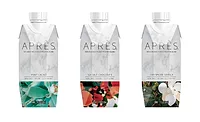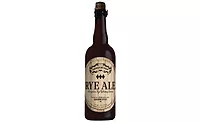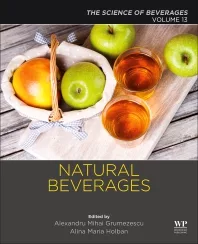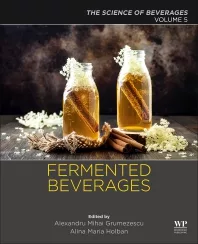Clean label influencing performance beverages
Beverage-makers seeking natural, functional ingredient sources
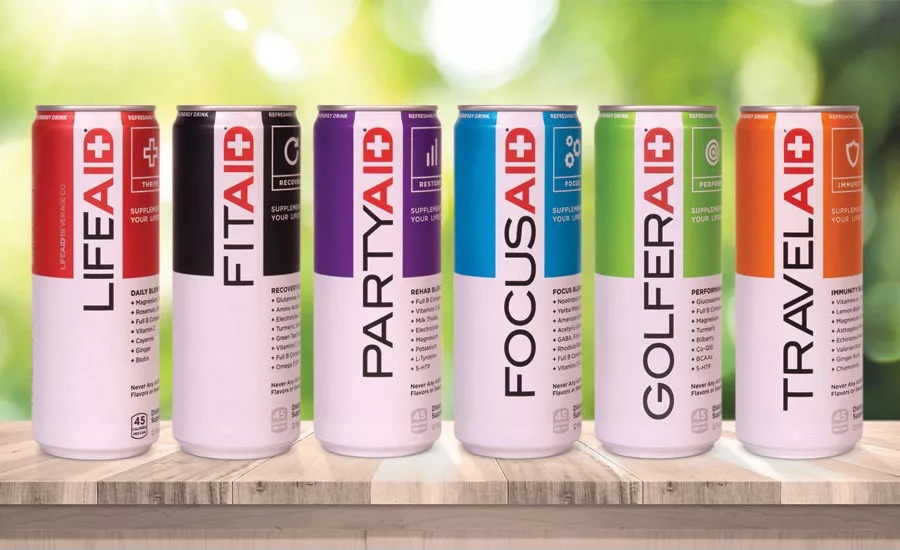
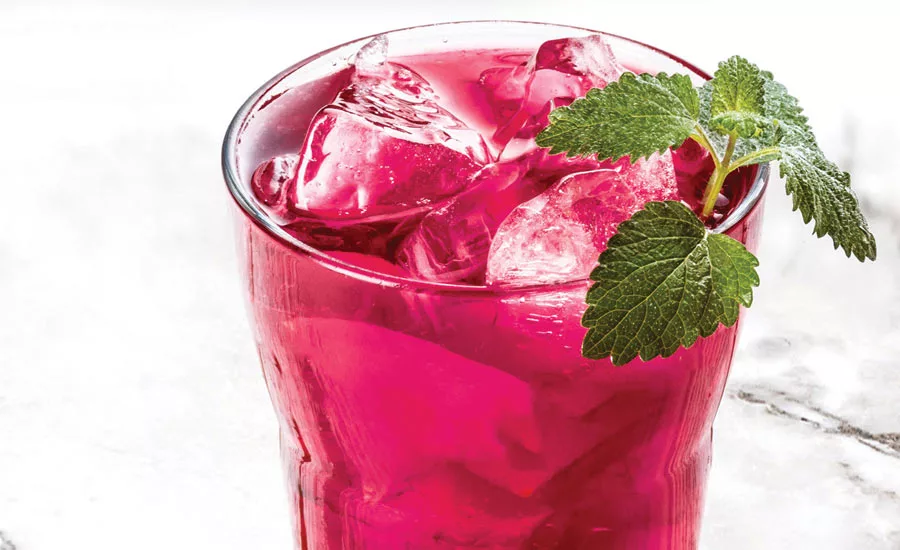
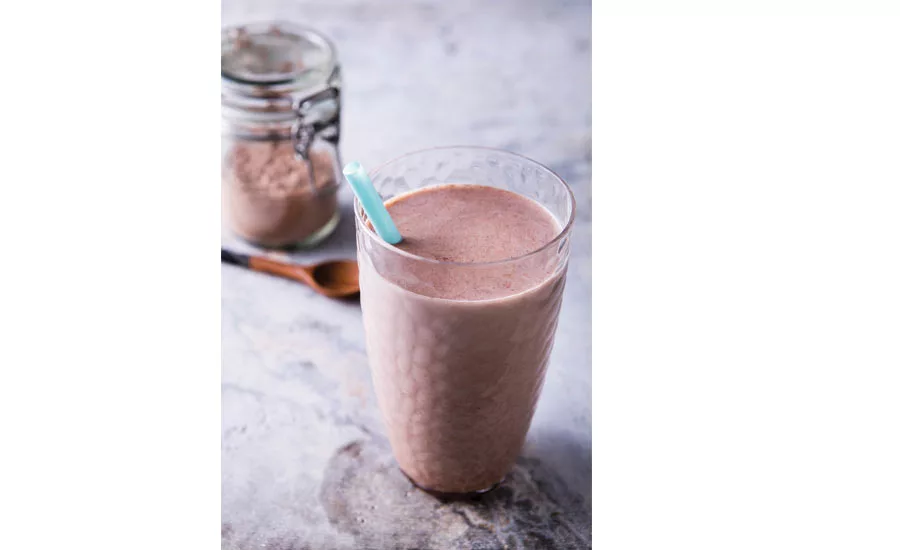
In Beverage Industry’s New Product Outlook survey published in the January issue, the Top 3 latest trends that respondents listed were natural, healthy and organic, aligning with the clean-label trends permeating the market. However, the No. 4 latest trend was energy boosting, suggesting that a merging of these trends could likely occur.
According to ingredient suppliers, clean label is having an increasing impact on the performance beverage market. In order to align with these trends, beverage-makers are turning to suppliers to provide natural solutions that still deliver a functional benefit.
“Consumer brand companies are looking at ways to incorporate healthier ingredients and formulations into their product lines,” says Grace S. Harris, director of applications and business development for Hilmar Ingredients, Hilmar, Calif. “New companies are emerging, and existing companies are seeking line extensions, to find the ‘next’ trend in delivering nutrition yet maintain good flavor and product performance.”
Suppliers also note that consumers are educating themselves on ingredients and seeking out products that align with the healthy, clean-label attributes they desire.
“Consumers are carefully checking labels for triggers like natural, non-GMO, no added sugar, etc.,” says Jon Peters, president of Parsippany, N.J.-based Beneo Inc. “Like food products, performance beverages are being impacted by these trends. In fact, U.S. research conducted by IPSOS and commissioned by Beneo in 2015 indicates a consumer preference for beverage products that are natural and clean label. This focus on natural and clean-label beverage products is indicative of the interest shown by U.S. consumers in avoiding preservatives, artificial colorings and intense sweeteners. Ingredients from natural sources are preferred to artificial ingredients, including a preference for ‘real’ sugar over artificial sweeteners.
“According to statistics from international market research company Mintel [in] 2015, manufacturers are keenly aware of these consumer preferences and have reacted to the demand by using more natural ingredients,” he continues. “In fact, one in four product launches between 2014 and 2015 in the category carried either a natural claim or a ‘no additives/preservatives’ claim.”
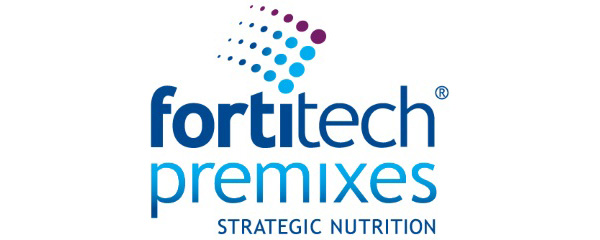
Meghan Wahlin, senior category strategy manager for Glanbia Nutritionals, Carlsbad, Calif., echoes the sentiment, noting that consumers are seeking transparency and what isn’t in a product can be as important as what is. “Consumers are looking for naturally functional beverages that contain reduced or zero calories, natural sweeteners, flavors and colors, as well as claims of being natural or organic,” she says.
Although beverage-makers want to incorporate clean-label, functional ingredients, suppliers note that it’s also important that the science supports those claims. “Consumers are much more informed about what they are actually consuming and [are] looking at the functionality and science behind the ingredients in products currently on the market,” says Marianne McDonagh, vice president of sales for Bioenergy Life Science Inc. (BLS), Ham Lake, Minn. “Ingredient manufacturers who brand and perform clinical studies on their ingredients are more than ready for this market change, and companies like Bioenergy Life Science (BLS) are excited for this trend since BLS develops scientifically proven, all-natural, multi-functional ingredients, such as Bioenergy Ribose, which is perfect for the functional beverage space.”
The demand for clean-label ingredients within performance beverages likely can be traced to the broader health-and-wellness macro trend. Ingredient suppliers highlight how health and wellness has evolved for the modern-day consumer to encompass lifestyle habits as opposed to dieting fads.
“Consumers, in general, are shifting away from traditional dieting and moving toward a more holistic approach to health and wellness. This transition has caused the once-niche performance beverage market to expand into more mainstream categories. In fact, over 50 percent of consumers use protein products to ‘maintain a healthy lifestyle and diet’ as opposed to more specific benefits like athletic performance, building muscle and weight loss,” says Orlaigh Matthews, strategic marketing manager of the nutritional beverage division for Kerry, Beloit, Wis., citing Kerry Primary Research.
“The traditional performance beverage consumers once chose [were] products strictly for their nutrition profile and performance results,” she continues. “In contrast, the more contemporary, expanded market reflects mainstream consumer demands beyond the hardcore athlete or dieter. For instance, over half of protein users now want natural products with fewer ingredients. While traditional performance beverage consumers were once willing to choke down anything for the sake of health, the majority of protein consumers now list taste, texture and flavor as top considerations when purchasing a product, [based on] Kerry Primary Research 2016.”
Amr Shaheed, technical service and development manager of beverage for Innophos Inc., Cranbury, N.J., highlights that health-and-wellness trends have had a strong impact on performance-based beverages. These trends are driven by consumers’ desire to live a healthy lifestyle.
“Consumers today are looking for products that provide [an] added functional benefit and strong claim substantiation to address their specific health needs,” he says. “Such needs include digestive health, healthy aging, anti-inflammation, immune health, cardiovascular health, weight management, muscle gain, mineral fortification and beauty benefits to name a few. Furthermore, the focus on health has also resulted in changes in consumer diets, facilitating the rise of vegetarians, vegans and flexitarians, who occasionally consume plant-based foods. As you can see, we are observing that consumers are turning to animal-free diets. These trends are driving beverage manufacturers to introduce products that meet these consumer trends.”
Citing a Mintel Global Food and Drink Trends 2017 report, Shaheed notes that the number of vegan food and beverage launches in 2016 increased 257 percent compared with five years ago.
“Mintel discusses consumer trends in its report titled ‘Exploring the power of food as medicine’ issued in July 2017, where they highlight that the share of global food, drink and healthcare products launched with a functional claim is highest in Europe (35 percent), followed by Asia Pacific (33 percent) and North America (14 percent),” he explains. “In addition, the non-dairy milk space is also expanding with 15 percent of total new product launches globally featuring a functional claim in the last year.”
Defining performance
For consumers, performance can be fueled at various times such pre-, post- and live action. And the fuel for which consumers seek also can vary based on the task and desired outcome, experts say.
“Normally ingredients are used in endurance type beverages for the following properties: supplying fast and sustained energy for muscles, improved fluid absorption, reduced cramping and dehydration, improved performance, easy to digest and absorb, delayed/decreased fatigue, and replenish electrolyte loss,” Shaheed says. “Most common ingredients used include amino acids, electrolytes such as sodium, potassium, chelated minerals for fast absorption by [the] body, calcium and magnesium products such as phosphate forms as acidity regulators (buffering agents), proteins, enzymes, and carbohydrates.”
Glanbia’s Wahlin notes that B vitamins and beta-alanine support endurance, while caffeine and quick-absorbing carbohydrates restore glucose and energy levels. She adds that amino acids like branched-chain amino acids (BCAAs), such as leucine, isoleucine and valine, can aid endurance.
“Citrulline and arginine are two important amino acids in the body’s production of nitric oxide (NO), which improves blood flow to working muscles,” Wahlin says.
To support the inclusion of amino acids in beverage formulations, Glanbia offers PepForm amino acids and other bioactive ingredients, she adds.
Yet, when consumers turn to performance beverages during their activity, sustained energy also can be a product attribute that they seek. Beneo’s Palatinose is an isomaltulose carbohydrate that is derived from beet sugar that delivers health benefits beyond fueling muscles, Peters explains.
“It is the only fully available but slowly released carbohydrate that supplies energy in a more balanced and sustained way than other commonly used sugars,” he says. “Being low glycemic, low insulinemic and contributing to a better fat oxidation in energy metabolism, Palatinose provides benefits for glucose control, and may also support weight management. An FDA health claim also confirms that Palatinose does not promote tooth decay. These are all characteristics that have proven popular with sports people as well as with consumers following an active lifestyle.”
BLS’ McDonagh highlights how the company’s Bioenergy Ribose not only provides sustainable energy to beverage formulations, but also can aid in recovery. “Bioenergy Ribose, a five-carbon carbohydrate and the backbone of our ATP structure, would be the perfect ingredient for recovery because all of your cells in your body need Ribose present to help your sore, stiff muscles recover faster and keep you energized and strong,” she says.
Sonia Hartunian-Sowa, scientific leader at DSM Nutritional Products, Parsippany, N.J., explains that when it comes to performance beverages, it is important to have an all-encompassing approach.
“When we think about sports endurance, we think of energy, recovery, muscle function and more,” she says. “DSM offers many ingredients that help power performance in these benefit areas. Essential nutrients such as the B vitamins [that] support energy generation and metabolism. Vitamins C and E are key antioxidants that can help support recovery. DSM also offers a unique dairy-based protein hydrolysate called PeptoPro. This product delivers protein as free amino acids and is rapidly digested and absorbed for instant delivery to muscles during exercise.”
Ramesh Thiyagarajan, senior marketing manager at DSM, adds that consumers also are turning to performance beverages because of their cognitive benefits.
“While consumers rank energy as an important health benefit in energy beverages, they also rate cognitive and mental sharpness as highly important,” he says. “So not only are consumers interested in purchasing new energy beverage products with B vitamins, they are also highly interested in new products with DHA omega-3 to help support a healthy brain.”
Recovery can be vital for the performance beverage market as more consumers recognize the strain muscles can experience during and after physical activity.
“Protein is a key ingredient for recovery,” Hilmar’s Harris says. “Electrolytes are also key in recovery beverages. Protein provides the essential amino acids for muscle recovery and synthesis. Electrolytes provide the minerals that are important for body fluid recovery and replenishing essential salts needed to maintain body fluid balance.”
As more consumers turn to protein-containing beverages, Hilmar has developed a whey protein isolate that can help broaden the categories in which protein is being used.
“There are many requests and new launches for ‘clear’ beverages that include novel and cross-over components as well as protein,” Harris says. “Protein that remains clear, such as our Hilmar 9020 whey protein isolate, have been significant in fueling the launch of new beverages. Clear protein-containing beverages provide energy, amino acids and satisfy consuming benefits such as low viscosity, fruit flavors and refreshing quick energy.”
Satya Jonnalagadda, global director of nutrition science for Kerry, also notes the importance of protein in post-workout recovery, but notes many factors should be considered and highlights additional options for support.
“Timing, quantity and [the] type of protein consumed impact muscle protein re-synthesis,” she explains. “Additionally, adequate carbohydrate intake is also important in supporting muscle glycogen replacement. Adequate rehydration and electrolyte replacement also play an important role during recovery. Ingredients such as yeast beta-glucan Wellmune have been shown to play an important role in supporting immune health during recovery.”
As more and more consumers turn to performance beverages, experts note the importance of formulators doing what they can to protect the integrity and efficacy of the performance-supporting ingredients.
“Formulating beverages with performance supporting ingredients can create many product challenges,” says Jose Barbosa, senior manager at the nutrition innovation center for DSM. “Taste and appearance are constant challenges in this segment. Yet, products need to provide a clear and noticeable effect that is backed by science if they are to succeed in the marketplace. DSM’s full portfolio of relevant vitamins and nutrients not only have scientific backing, but they also come with our Quality for Life promise.
“Ingredients that support performance, like proteins, tend not to be soluble and, therefore, can create undesirable product appearance,” Barbosa continues. “DSM has a compliment of performance supporting ingredients, like PeptoPro that combined with DSM carotenoids, can deliver clear and attractive product appearance. DSM recommends antioxidants like vitamin C to enhance the shelf life of ingredients and products. Manufacturers and consumers do not need to sacrifice performance for taste or appearance.”
Innophos’ Shaheed also emphasizes the importance of protecting ingredients and their efficacy in beverage formulations.
“At Innophos, we are positioned to help product developers with many of the challenges that they face when developing a new product which will support innovation and growth,” he says. “Our main task is to be a solution-provider to our customers by applying our expertise and knowledge in the science and blending of phosphates and our nutritional ingredients. Our branded blends of phosphates and our nutritional signature ingredients provide many solutions to many challenges beverage product developer could be facing.
“For instance, phosphates simply protect proteins,” Shaheed continues. “All proteins; animal based proteins that is widely used to meet high protein consumer demand and non-animal types that fits the vegan and flexitarian growing demands.” BI
Looking for a reprint of this article?
From high-res PDFs to custom plaques, order your copy today!




